In talking to clients here at UF, many in our community believe that they are “healthy” for the most part. You know, they eat basically enough veggies and protein, and try to go for whole grains when given the option. We drink too much once in a while, and shoot for 8 hours of sleep a night. Combine that with regular workouts at UFO and a healthy dose of perspective (we won’t all have Alexei-arms, OK!?!), we definitely believe we live within healthy zones...right?
Well, I got to talking with a super-regular UFer the other day, and it came out that she recently had been diagnosed with pretty severe anemia caused by iron deficiency. Here’s someone who is very aware of her body, exercises regularly, and cares about what she eats. Worried about a few abnormal changes in her body, she went in to see the doc and came away with some serious gratitude about the timing of her visit; turns out that a pretty minor incident might have triggered a severe reaction because her iron levels were so incredibly low.
Needless to say, we were very glad to hear that she paid attention to her body, got some medical help and is doing much better. But considering that more than 1 in 10 women (ages 20 - 49) are iron deficient--and 1 in 20 are deficient enough to be considered anemic--it got us thinking how it might be a good idea to address the UF crew more generally about what anemia is, how it is caused, how you can know if you’re at risk, and what to do about it. So here we go!
Basically, anemia is just a failure by your body to deliver oxygen to your tissues. Considering that every cell in your body requires oxygen to execute its job, oxygen delivery ends up being pretty important. Brain and muscle activity, ability to burn fat, and immune system function are a few of many processes that start to break down when the body becomes anemic.
Anemia can be caused by many things, including vitamin B12 deficiency, internal bleeding, and genetic mutations. However, iron deficiency is far-and-away the most common cause, especially among women of child-bearing age (who experience the highest rates of anemia). Without enough iron, your red blood cells have trouble grabbing those tasty oxygen molecules from your lungs, and all the tissues in your body suffer. While anemia is an extreme state of oxygen deficiency, you may experience some anemia-like symptoms with “sub-clinical” levels of iron-deficiency.
So how do you know if you’re iron-deficient, or anemic? It’s impossible to tell without a proper diagnosis from a your doctor, but some of these symptoms might be early-warning signs:
Easy fatigue and loss of energy
Unusually rapid heart beat, particularly with exercise (easy to see with MyZone!!!)
Shortness of breath and headache, particularly with exercise
Difficulty concentrating
Dizziness
Pale skin
Leg cramps
Insomnia
Additionally, the following symptoms may indicate a more serious condition, while also pointing towards specific deficiencies:
Iron deficiency…
A hunger for strange substances such as paper, ice, or dirt (a condition called pica)
Upward curvature of the nails, referred to as koilonychias
Soreness of the mouth with cracks at the corners
Vit. B12 deficiency…
A tingling, "pins and needles" sensation in the hands or feet
Lost sense of touch
A wobbly gait and difficulty walking
Clumsiness and stiffness of the arms and legs
Dementia
Hallucinations, paranoia, and schizophrenia
Do you recognize of these? If so, we definitely recommend going to talk to your doctor about potential anemia risk. Luckily, correcting your course is pretty straight-forward for most people, and involves adjusting dietary iron intake. However, some people might have more complicated situations that involve issues with nutrient absorbtion, and--again--a medical professional’s help is critical.
I hope this finds you well, and as always, please do not hesitate to be in touch if you have any questions!
References:
http://www.webmd.com/a-to-z-guides/iron-deficiency-anemia-topic-overview
http://www.thedoctorwillseeyounow.com/content/nutrition/art2046.html
http://www.mayoclinic.org/diseases-conditions/iron-deficiency-anemia/basics/symptoms/con-20019327
http://www.precisionnutrition.com/sub-clinical-anemia
http://www.precisionnutrition.com/all-about-phytates-phytic-acid

